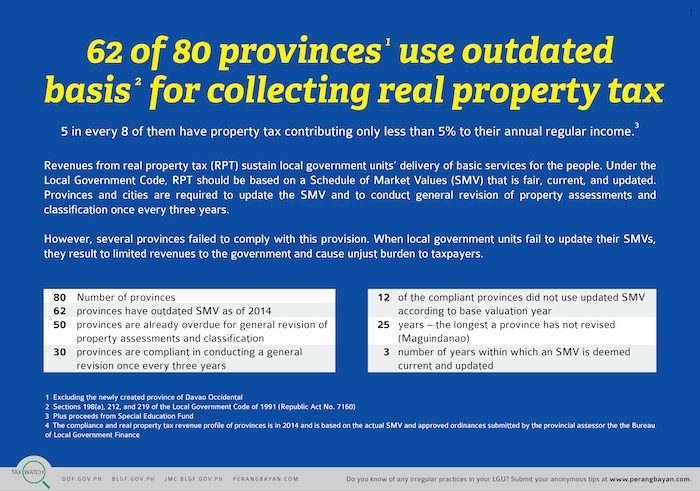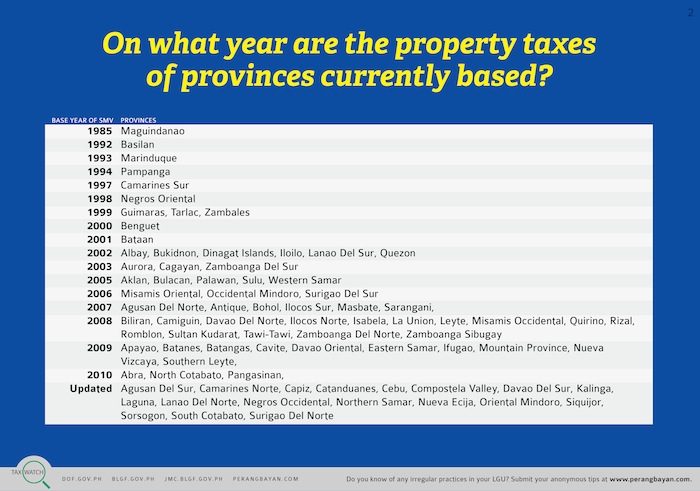SUMMARY
This is AI generated summarization, which may have errors. For context, always refer to the full article.

MANILA, Philippines – The Bureau of Internal Revenue (BIR) called the attention of provincial governments in the country in its latest print ad, saying many of them were losing revenues due to an “outdated” valuation system for real property tax (RPT) assessment.
The BIR’s Tax Watch ad published on Wednesday, June 4, stated that 62 or 78% of the 80 provinces in the country (excluding the newly created province of Davao Occidental) were using dated Schedule of Market Values (SMVs), the basis for computing RPT. Maguindanao, for example, was using 1985 as valuation year.
The BIR added that “5 in every 8” of the provinces with old SMVs “have property tax contributing only less than 5% to their annual regular income.”

Under Section 198(a), 212, and 219 of the Local Government Code of 1991, RPT should be based on current, fair, and updated SMVs. Updating SMVs and conducting general revision of property assessments and classification should be done by cities and provinces once every 3 years.
“When local government units fail to update their SMVs, they result [in] limited revenues [for] the government and cause unjust burden to taxpayers,” the BIR ad read.
“An updated Schedule of Market Values leads to more revenues from real property tax. More revenues mean more social services,” it added.
The Tax Watch ads are part of the bureau’s name-and-shame campaign aimed at curbing tax evasion and increasing tax payments.
Previously, the bureau released ads targeting big corporations and self-employed professionals, such as lawyers and doctors.
To boost monitoring, the bureau also issued new rules on tax filing.
Recently, it released Revenue Regulations 4-2014, which ordered self-employed professionals to disclose their service fees.
The Supreme Court issued a temporary restraining order on said BIR order twice, stopping the bureau from implementing it. – Rappler.com
Add a comment
How does this make you feel?
There are no comments yet. Add your comment to start the conversation.